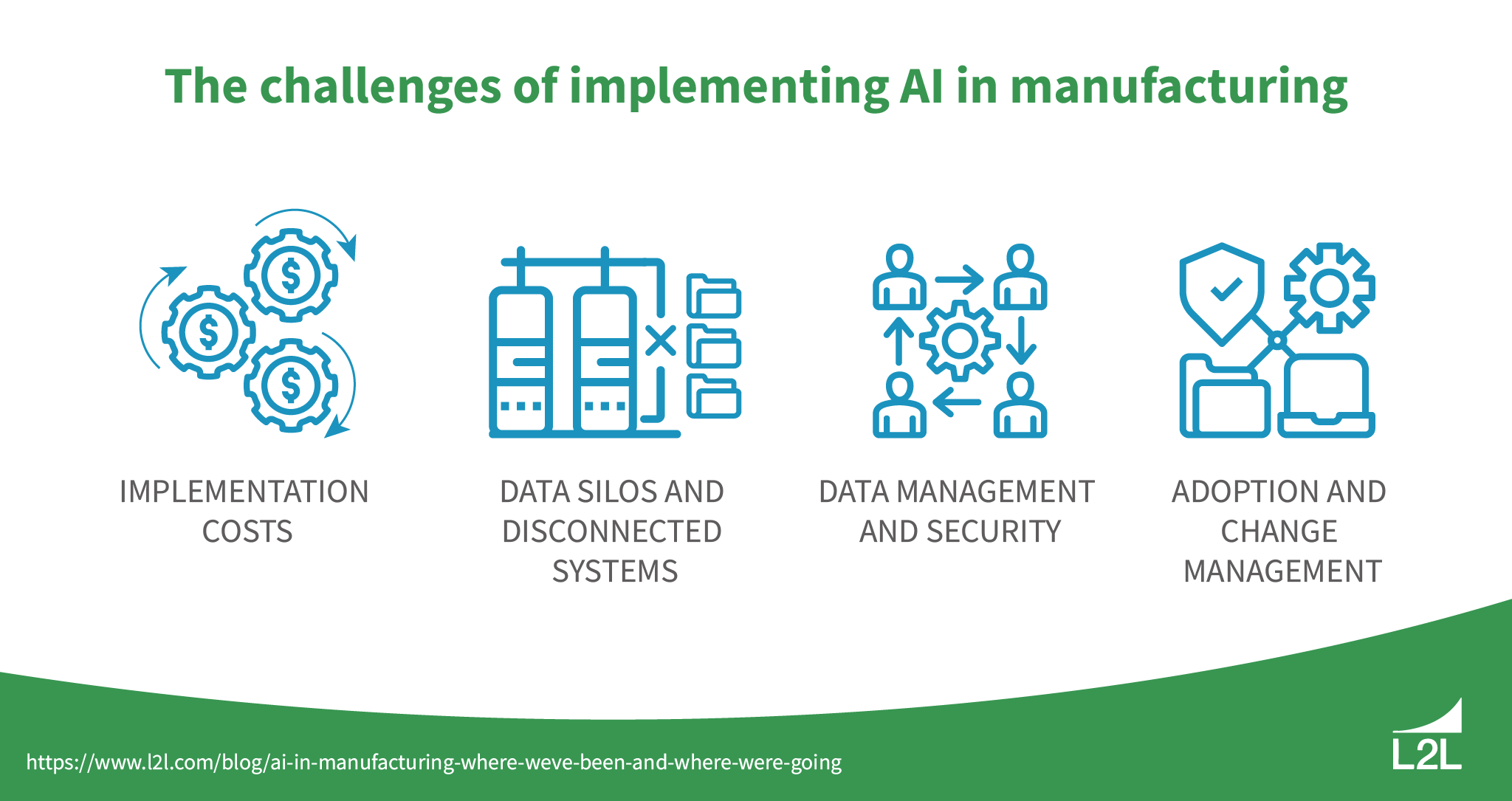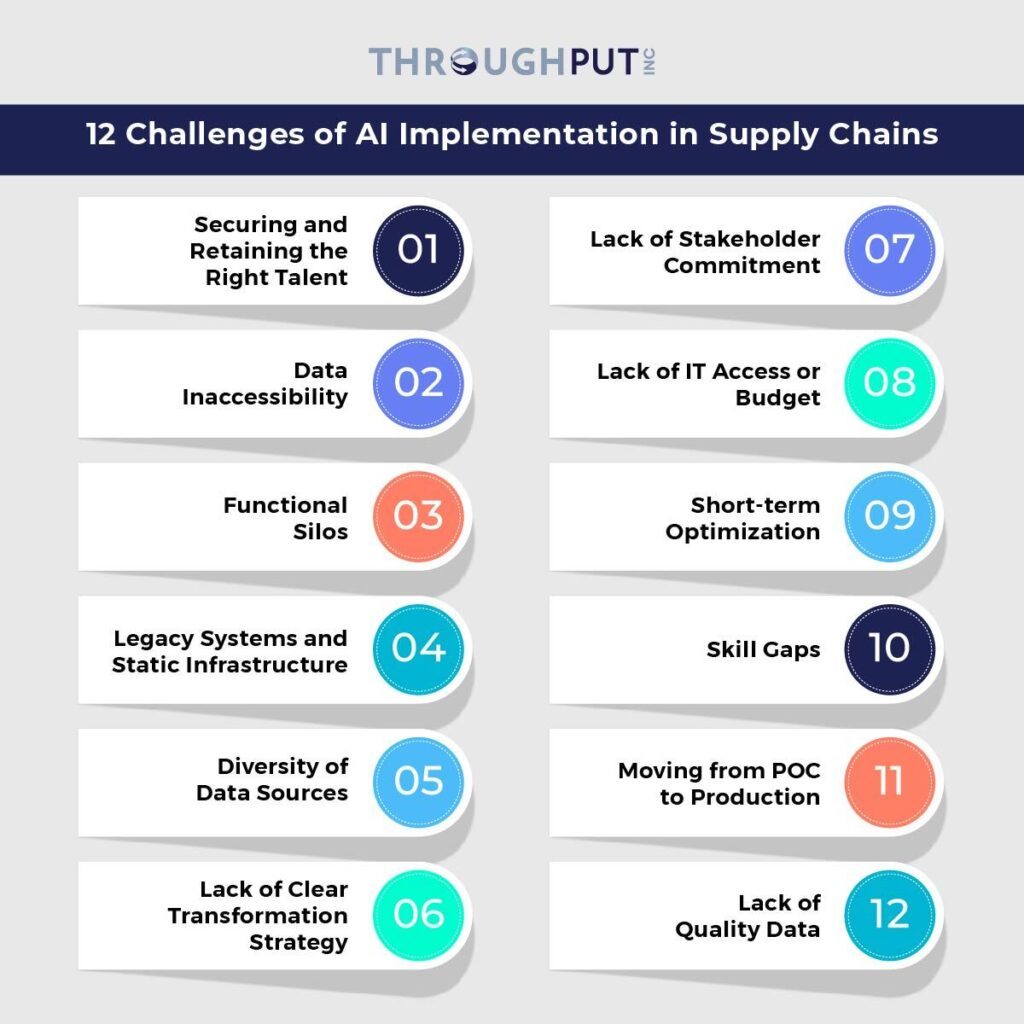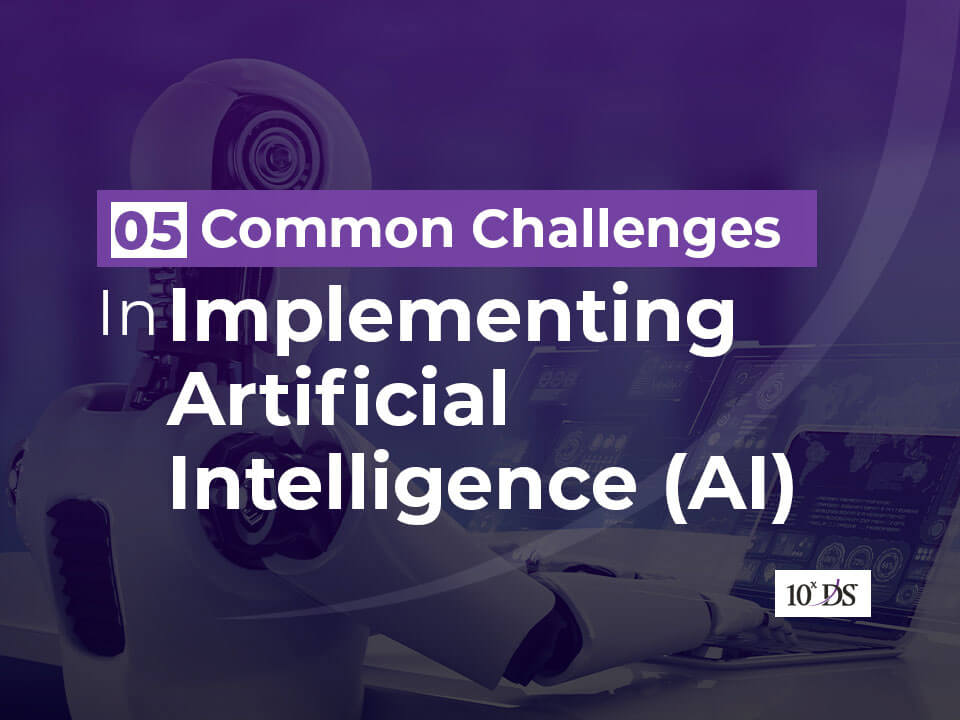Reference




OpenAI's Answer
Implementing AI in industries presents a range of challenges that organizations must navigate. Here are some key obstacles commonly faced:
-
Lack of In-House Expertise: Many companies struggle with finding or developing the necessary talent skilled in AI technologies and applications. Source
-
Data Management Issues: AI systems rely heavily on quality data. Challenges include poor data quality, data privacy concerns, and the complexities of data integration from diverse sources. Source
-
Infrastructure Limitations: AI technologies often require updated, capable infrastructure which many companies do not possess, leading to additional investment needs. Source
-
Ethical and Regulatory Concerns: Implementing AI raises significant ethical issues, such as bias in algorithms, and compliance challenges with regulations pertaining to data usage and privacy. Source
-
Integration with Existing Systems: Integrating new AI technologies with legacy systems can be complicated and costly. Source
-
Employee Concerns and Job Security: The introduction of AI can lead to concerns about job displacement, which can affect workforce morale and acceptance of AI initiatives. Source
-
Financial Investment: Implementing AI solutions can require significant financial investment, which not all organizations are prepared to commit. Source

Addressing these challenges involves strategic planning, investment in training and infrastructure, and careful consideration of ethics and regulations.
Follow Up
Reference




Moonshot's Answer
Implementing AI in industries presents several challenges, as identified by various sources:
-
Lack of In-House Expertise: Many companies lack the necessary AI expertise to implement and manage AI systems effectively. This can lead to difficulties in understanding how to best utilize AI within their operations Forbes.
-
Uncertainty About Where to Implement AI: Companies often struggle to identify the most beneficial areas within their business to apply AI, which can result in ineffective AI implementations Forbes.
-
Absence of Updated, Capable Infrastructure: Outdated infrastructure can hinder AI implementation, as AI systems often require advanced hardware and software to function optimally Forbes.
-
Data Privacy and Ethical Concerns: AI technology raises ethical and regulatory concerns, particularly regarding data privacy, bias, and transparency. Non-compliance with regulations can lead to legal issues Nuvento.
-
Poor Data Quality: Inaccurate or incomplete data can undermine the effectiveness of AI systems, leading to poor decision-making and outcomes TechTarget.
-
Employee Job Security Concerns: The implementation of AI can lead to concerns about job displacement, which can affect employee morale and acceptance of AI within the workplace TechTarget.
-
Limited Access to Talent: There is a shortage of skilled professionals who can develop and manage AI systems, making it difficult for companies to find the right talent to support their AI initiatives Deloitte.
-
Lack of Investment and Senior Management Commitment: Insufficient investment and lack of commitment from senior management can hinder AI initiatives, as they often require significant resources and support to be successful Statista.
-
Integration with Legacy Systems: Integrating AI with existing legacy systems can be complex and costly, potentially causing delays and increased expenses in AI implementation TheCodeWork.
-
Regulatory and Legal Challenges: Navigating the legal landscape for AI can be difficult, with varying regulations across different regions that companies must comply with LinkedIn.
These challenges highlight the complexities involved in implementing AI within industries and underscore the need for careful planning, investment in talent and infrastructure, and adherence to ethical and legal standards.